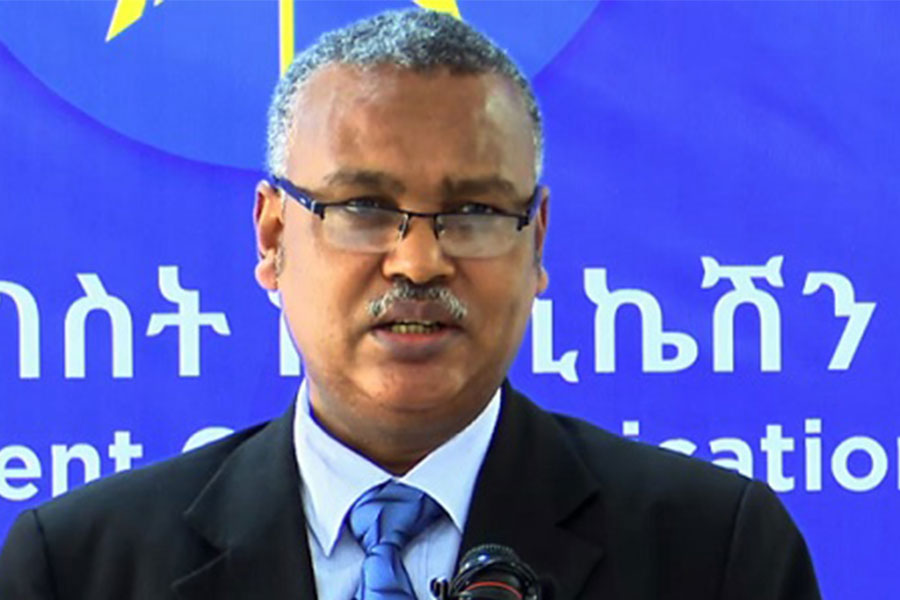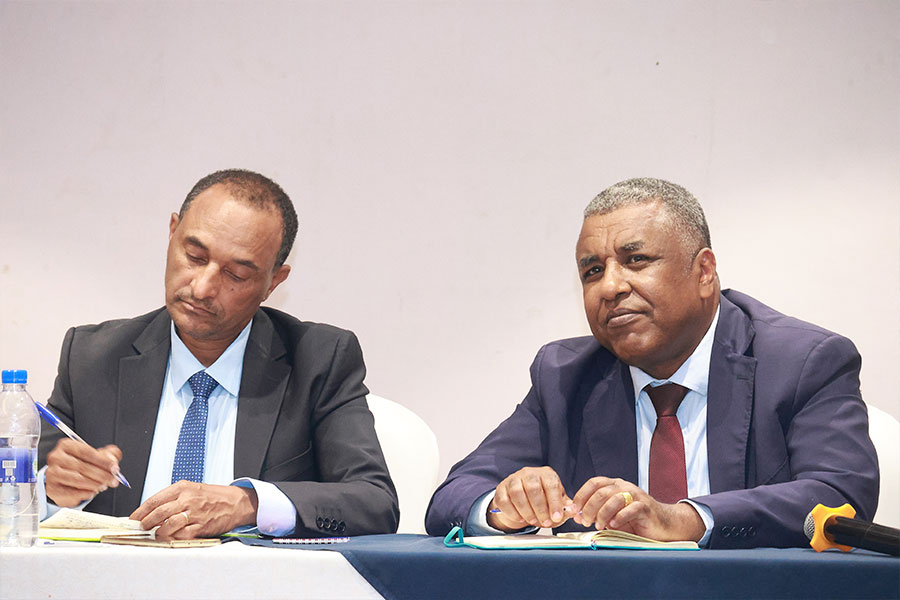
Fineline | Nov 21,2018
Jun 9 , 2021

Authorities of the federal government have denied the risk of famine in Tigray Regional State, despite pressure from Western governments and international humanitarian organisations warning of the prospect of deaths in the thousands.
In a press briefing held at the Office of the Prime Minister today, Mitiku Kassa, head of the National Disaster Risk Management Commission, iterated that the humanitarian situation in Tigray does not pose a risk of famine. He maintains that there are no food shortages due to an adequate amount of aid being provided.
No less than 20pc of households in a specific area should face food shortages with the inability to cope, and there should be acute malnutrition rates among children above 30pc, while the deaths of two out of 1,000 people daily due to hunger are other indicators necessary to declare there is famine, according to Mitiku.
The world sees what is unfolding in Tigray differently.
Famine is imminent in Tigray, according to the United Nations humanitarian chief, Mark Lowcock. He warned that there is a risk that hundreds of thousands of people or more could die if the humanitarian emergency is not delivered in time for a population caught up in the conflict between warring parties in the regional state, since November last year.
"We’re hearing of starvation-related deaths already,” Lowcock said.
His fears were amplified this week by UN Secretary-General Anthony Guterres and David Beasley, head of the World Food Programme (WFP), a close friend of Prime Minister Abiy Ahmed (PhD). He first negotiated humanitarian access to the region after the outbreak of the war.
"People are dying of hunger in Tigray," Beasley tweeted yesterday.
This has not happened in Tigray, according to Mitiku.
InterAction, a US-based aid agency, says the "scale of hunger is worse because many parts of the region remain difficult, if not impossible, for humanitarian agencies to access.”
More than 90pc of the population in Tigray requires emergency food assistance. Aid agencies, including the WFP, handle more than 90pc of the food distribution works, while the government’s role is confined to creating a conducive environment for them. However, it handles the supply of food items in 14 woredas in Western Tigray. About 4.5 million people have received aid in Tigray so far, according to the government.
"Time is running out," warns the WFP chief. "We need unfettered humanitarian access to scale up and avert a catastrophe. ALL parties must make good on this commitment NOW."

Fineline | Nov 21,2018

Exclusive Interviews | Dec 23,2023

My Opinion | Jul 09,2022

Viewpoints | Jan 04,2020

Verbatim | Jan 07,2024

View From Arada | Mar 23,2019

Fortune News | Jul 07,2024

Radar |

Verbatim | Jul 20,2019

Radar | Dec 05,2018

Photo Gallery | 180394 Views | May 06,2019

Photo Gallery | 170596 Views | Apr 26,2019

Photo Gallery | 161638 Views | Oct 06,2021

My Opinion | 137278 Views | Aug 14,2021

Nov 1 , 2025
The National Bank of Ethiopia (NBE) issued a statement two weeks ago that appeared to...

Oct 25 , 2025
The regulatory machinery is on overdrive. In only two years, no fewer than 35 new pro...

Oct 18 , 2025
The political establishment, notably the ruling party and its top brass, has become p...

Oct 11 , 2025
Ladislas Farago, a roving Associated Press (AP) correspondent, arrived in Ethiopia in...